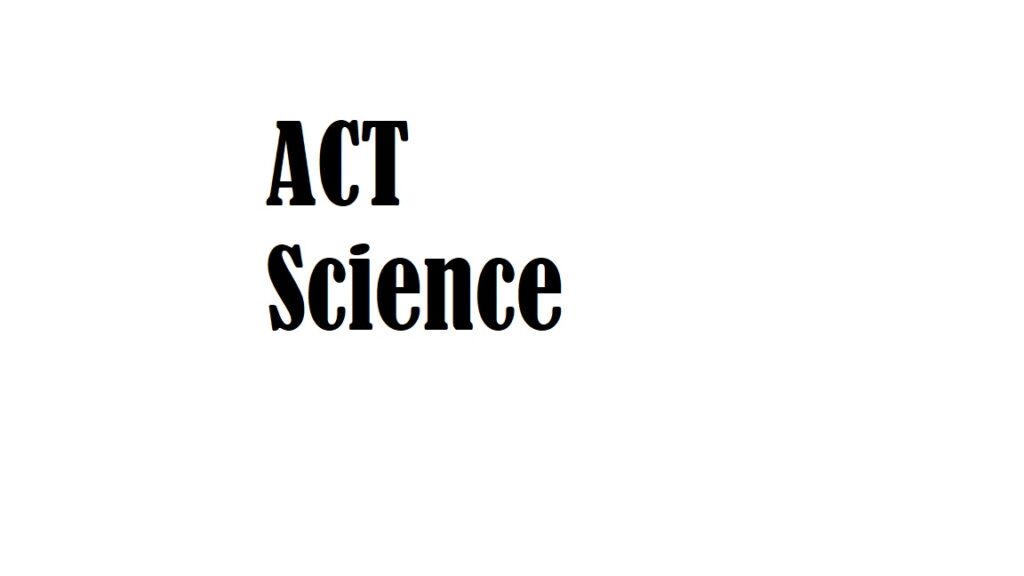About ACT Science Section
What do you need to know about ACT science section?
The Science section of the ACT test evaluates interpretation, analysis, evaluation, reasoning, and problem-solving skills necessary in the natural sciences. It features authentic scientific scenarios followed by multiple-choice questions covering biology, chemistry, Earth/space sciences (e.g., geology, astronomy, meteorology), and physics. While advanced knowledge is not mandatory, familiarity with introductory science courses may be required for some questions.
This section emphasizes a comprehensive assessment approach, blending science content with skills and practices. You will be tested on:
Recognizing and understanding basic features and concepts related to provided information.
Critically examining the relationship between given information and drawn conclusions or hypotheses.
Generalizing from provided information to derive new insights, draw conclusions, or make predictions.
The ACT Science Test covers various content areas. Scores reported include an overall section score and three reporting category scores based on scientific knowledge, skills, and practices:
Interpretation of Data (40–50%): Involves manipulating and analyzing scientific data from tables, graphs, and diagrams to recognize trends, translate data, interpolate, extrapolate, and reason mathematically.
Scientific Investigation (20–30%): Focuses on understanding experimental tools, procedures, design, identifying controls and variables, and comparing, extending, and modifying experiments.
Evaluation of Models, Inferences, and Experimental Results (25–35%): Requires judging the validity of scientific information, formulating conclusions, and making predictions based on the information provided.
The scientific information on the test appears in three formats:
Data Representation (25–35%): Presents graphic and tabular material akin to science journals, testing skills like recognizing relationships, interpolation, extrapolation, and translating data into graphs.
Research Summaries (45–60%): Describes results of related experiments, focusing on experiment design and result interpretation.
Conflicting Viewpoints (15–20%): Presents differing explanations for the same phenomena, testing understanding, analysis, and comparison of alternative viewpoints or hypotheses.
ACT science section is crucial for some colleges , do not waste it
Remember, calculators are not allowed in the Science section.
Find us in Facebook
Study Figurative language

